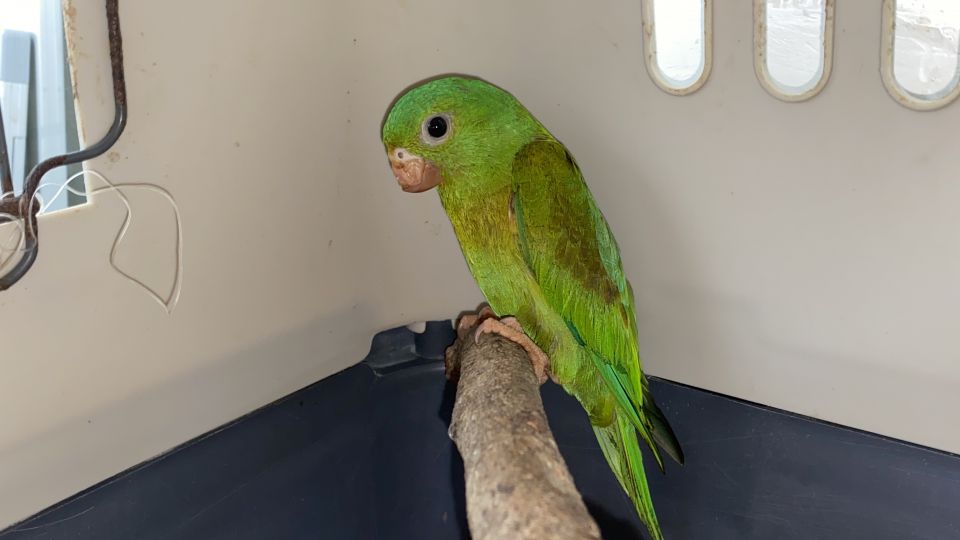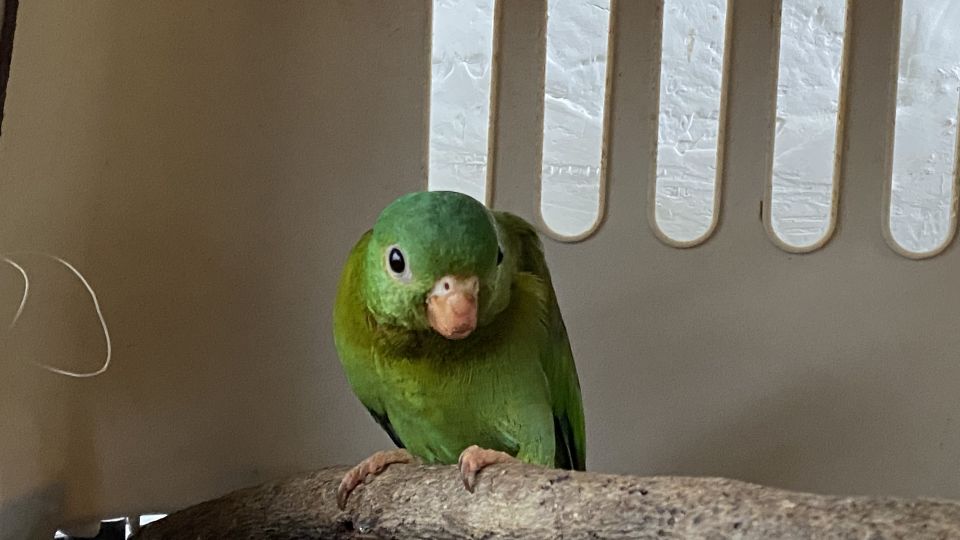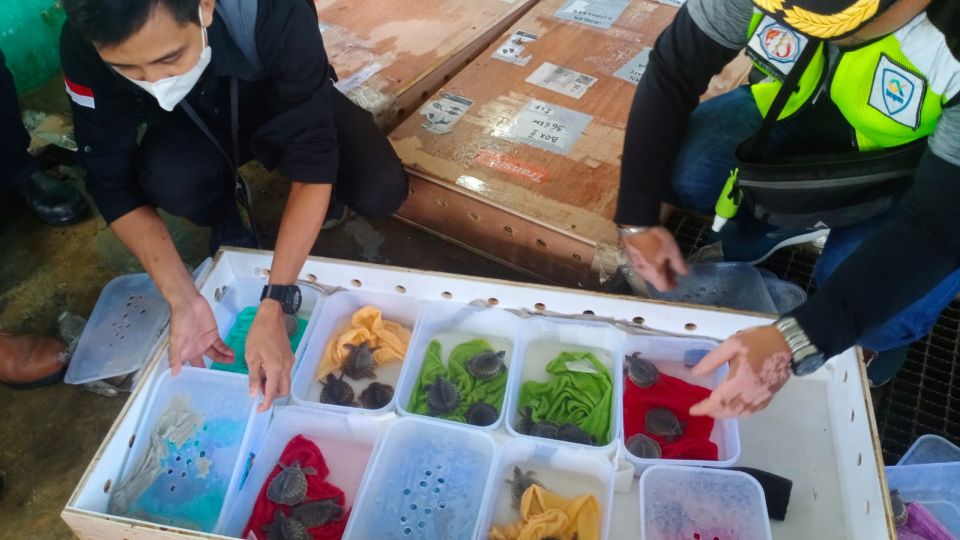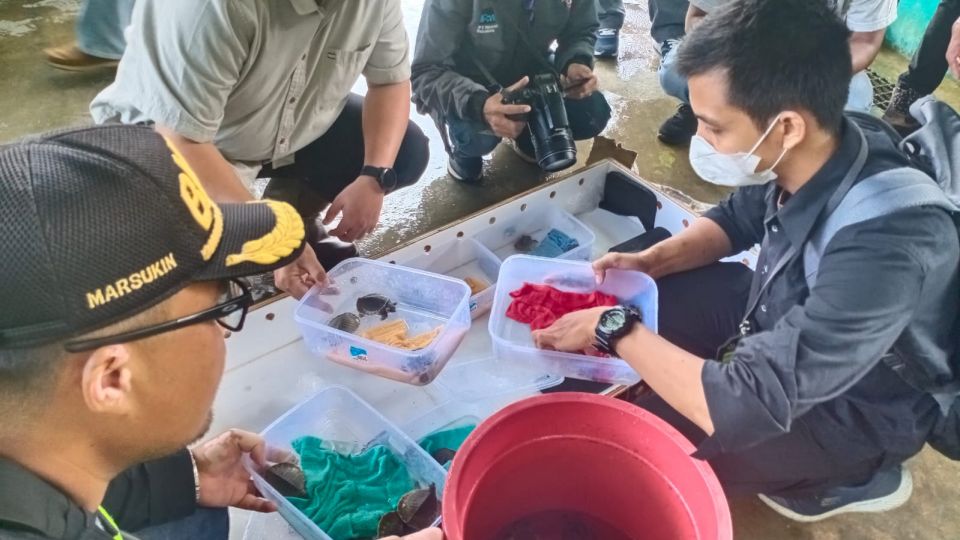Take On The Trade
Intro
The illegal wildlife trade shows no mercy! It devastates wild animals all around the world, tearing them away from their natural habitats and hampering biodiversity! The sheer scale is unbelievable with billions of dollars exchanging hands and tens of thousands species currently being traded. Critically endangered animals are at risk of disappearing altogether if we don’t stop the poachers, traffickers and crime syndicates orchestrating this tragedy.
Working with the authorities and our partners, we are fighting this barbarity across all of our projects around the world, but we desperately need your help. Please donate today and together we can ‘Take On The Trade’.
Recent Rescues
-
Sumatran Orangutan
-
Grey Langur
-
Leopard Cat
-
Sloth Bears
-
Silvery Gibbon
-
Orange Chinned Parakeet
-
Pig-Nosed Turtles
This Sumatran orangutan, called Kaka, was recently brought into the North Sumatra Center for Conservation of Natural Resources (KSDA) after it was discovered he was being kept as a pet. The West Java BBKSDA animal rescue task force team took the three-year-old Kaka out of the possession of residents who “owned” him.
Fortunately, after medical checks were conducted, Kaka appeared to be healthy and was deemed fit for eventual release in a wild location determined by the Director General of Source Conservation Natural Resources and Ecosystems. In the meantime, in a collaborative translocation with Sumatran Orangutan Conservation Programme (SOCP) Kaka was taken to the SOCP Orangutan Quarantine and Rehabilitation Centre in Sibolangit to undergo the rehabilitation process.
Despite a happy ending for Kaka, the circumstances he was found in should never have taken place to begin with! Please take a moment to consider all the wild animals who weren’t as lucky, as we really need your support to fight the illegal wildlife trade.
After spending three years in captivity, Bilqis, the Grey Langur monkey, was finally rescued by the BKSDA, with support from our Indonesian partners, IAR Indonesia.
The langur’s owner was informed that keeping Bilqis as a pet was illegal, and that he must surrender the monkey to the Indonesian authorities. She is currently undergoing medical treatment and will be returned to her natural rainforest home as soon as possible.
Bilqis should have never ended up as a pet, and we are thankful for the efforts of the BKSDA for tackling this illegal trade! By supporting our appeal, you will give animals across the world the chance to roam the wild instead of chained up in cages!
We are working extremely hard with the support of our partners, BKSDA, to tackle wild animals being caught up in the illegal wildlife trade. Last month, together we rescued a leopard cat who was in possession of a local resident of Bogor. The resident was unaware that this cat was a protected species, and surrendered the cat to the authorities.
We assessed the medical condition and behaviour of the leopard cat, and determined that it was still showing natural behaviour and was physically healthy and able to return to the wild. Fortunately, the wildcat was released into Mount Halimun Salak National Park, free to live in its natural habitat, where it belongs!
Please, if you can, support our ongoing fight against the illegal wildlife trade all over the world.
After being stolen from the wild and beaten into submission, these sloth bears’ cruel captors shoved a hot poker through their muzzles and then pushed a rope through the wound. With our Indian partners Wildlife SOS, we ended the dancing bear tradition, but these bears were trafficked across the Nepalese border into the state of Jharkhand, India, and were forced to dance for a jeering crowd.
This disgusting act of cruelty took place in May of this year. After an investigation carried out by Wildlife SOS, the Chief Wildlife Warden of Jharkland organised a rescue mission and transported the bears to a secure government facility, where they are receiving care.
This footage serves as a chilling reminder of the past, where this abuse was common on the streets of India. We worked with Wildlife SOS and Free The Bears to rescue every single one of them, ending the dancing bear trade and putting measures in place to ensure that any trafficked bear can be rescued securely and quickly. Unfortunately, in this case, traffickers exploited the porous border of Nepal for their own sick gain.
We are fighting for suffering animals across the world, working with local authorities to ensure EVERY single animal has the chance of survival. Please make a donation so we can fight the illegal wildlife trade, so together we can create a better world for all animals!
This is Oga, a one armed silvery gibbon who, until recently, was enduring five long years in captivity. It is hard to believe that these intelligent, sentient and endangered primates are still illegally traded. Oga was originally reported to the Natural Resources Conservation Office (BKSDA) following neighbouring residents hearing Oga’s loud and distressed call.
Along with our partners, the BKSDA, the gibbon was rescued and brought into the care of IAR Indonesia to receive a medical check-up. Fortunately, he was declared healthy and it appears the injury to his lost arm must have healed when he was much younger.
He was then translocated to the Aspinall Foundation Indonesia in West Java where he will be given the rehabilitative care he needs. We can only imagine the horrors this sweet gibbon must have experienced being captured from the wild, transported and then sold into captivity. And although we are happy Oga was rescued, he should never have been in these circumstances to begin with!
If you want to help prevent countless animals suffering this same fate, please consider supporting our work to fight the illegal pet trade around the world.
The barbaric damage inflicted on Paco the orange chinned parakeet has left him mutilated. So much so, it is likely he will never fly in the wild ever again!
Similarly to how slow lorises get their teeth clipped, or big cats have their claws removed, this parakeet was mutilated for “safety reasons” as a result of the pet trade! As you can see in these photos, poor Paco is missing the tip of his beak. This is done to prevent him from biting his “owners” whilst he gets used to being handled. Sadly, this cruelty inflicted on exotic animals is a very common practice in rural areas of Costa Rica once they become pets.
Parakeet beaks are essential for their survival in the wild; it allows them to hold on to food, gives them balance, it’s also used for grooming, eating and defending themselves. Not only that, but Paco no longer behaves like a wild animal due to his learned pet behaviour which was drilled into him. It pains us to say this, but it means Paco will probably never be released back into his natural habitat.
We will do our very best to provide the love and care Paco needs, but we need your help to stop these terrible incidences from happening to countless more animals. Please donate today ‘Take On The Trade’ so animals like Paco can live their lives where they belong, in the wild.


Earlier this year the Wildlife Rescue Unit team of the West Sumatra Natural Conservation Office (BKSDA) and the West Sumatra Police seized an enormous number of wild animals from the clutches of the illegal wildlife trade.
An unbelievable 472 pig-nosed turtles and six Asian forest tortoises to be exact!
Sadly, even though the trade in marine turtle species is prohibited amongst 160 countries of CITES - the Convention on International Trade of Wild Species of Fauna and Flora - the illegal trade still lives on, pushing many towards extinction. Pig-nosed turtles are especially targeted to be sold as pets, harvested for meat consumption or used in traditional medicines.
Thankfully, this wouldn’t be the case in this instance. In fact, after a medical check by the IAR Indonesia team, 167 of these turtles were deemed fit to return to their natural habitat in Timika-Papua and have since been released. Although these pig-nose turtles were fortunate enough to be released, the illegal wildlife trade remains to be one of the biggest threats affecting the world’s most vulnerable species worldwide.
This is why we need your help! Please support the work of ending this devastating injustice inflicted on animals all over the world.



